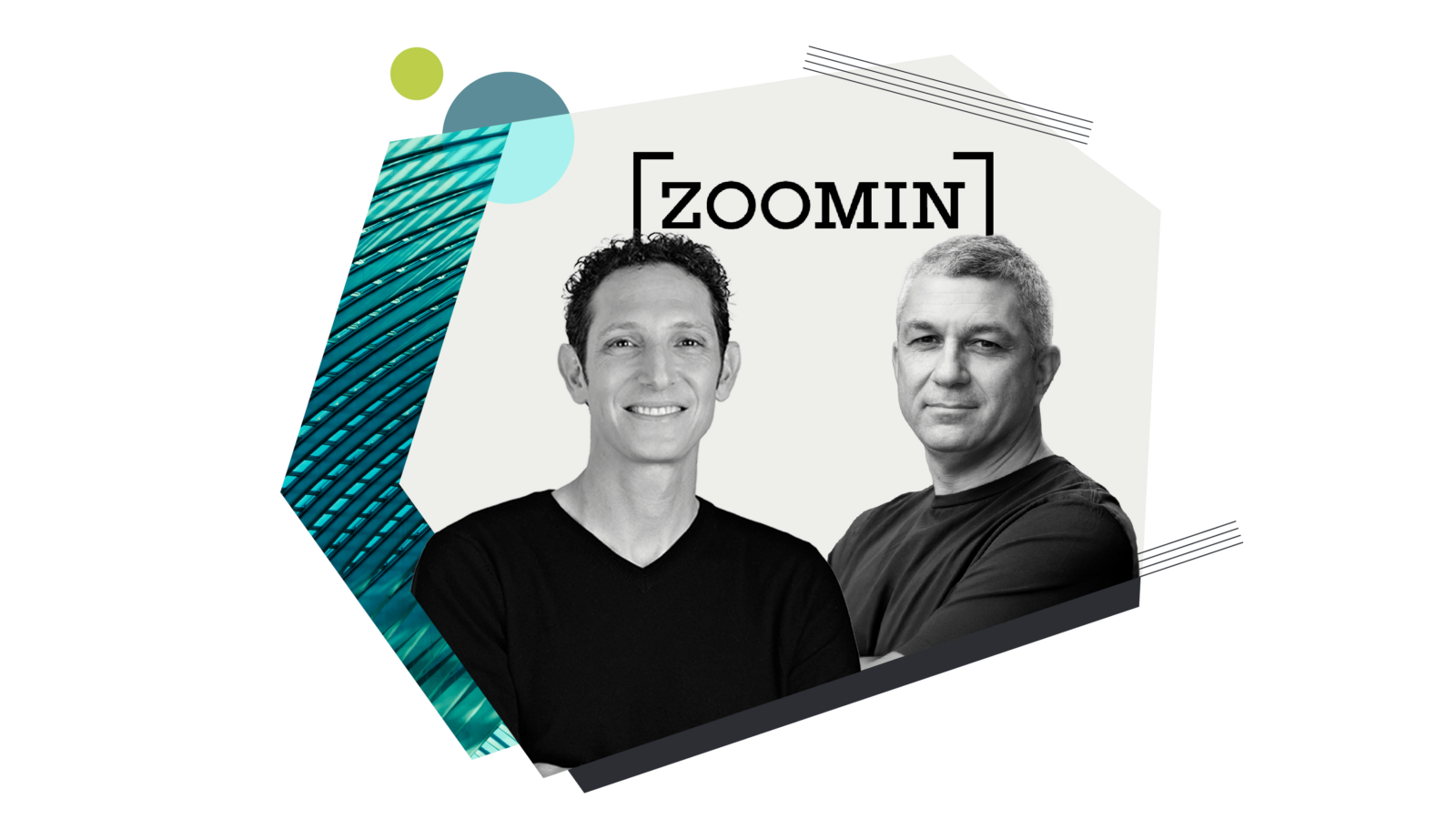Shippo CEO Laura Behrens Wu on the value of persistence and turning the Silicon Valley myth into reality
Five lessons learned from an unplanned move overseas and one co-founder’s journey to banish the friction in e-commerce shipping.
When Shippo’s co-founder and CEO Laura Behrens Wu began her career as an intern at a startup in her hometown in Germany, Silicon Valley sounded like a faraway world to her—full of unicorns, angel investors, and entrepreneurial journeys where everyday people built new inventions for the world.
“It was a place I only heard about through TechCrunch,” she recalls with a laugh. “It felt mythical to me.” Since then she’s founded Shippo, one of today’s fastest growing startups, and scaled it by an order of magnitude. Shippo, a platform designed to simplify and modernize shipping for e-commerce businesses, is used by over 40,000 top online brands and boasted a 100% revenue growth rate in 2019.
The six-year-old company is also among the fortunate few to experience significant tailwinds as a result of the Covid-19 pandemic, due to a spike in e-commerce’s market penetration. As the inaugural guest on our new This Is Series A podcast, Laura reflects on her epic journey from intern to founder and divulges her most valuable lessons.
Follow sparks of passion even if they take you across the world
As a university student trying to claw her way into the startup world, Laura toiled over internship opportunities on AngelList. But a five-minute chance encounter was far more impactful on her ultimate career trajectory. “By pure luck, I ran into a YC founder at a meetup in Zurich,” she remembers. “The YC founder is a pretty common breed in San Francisco, but much rarer to meet in Europe.”
She managed to impress him enough that he offered to forward her resume to his YC mailing list of peers. “Overnight, I got nearly 30 responses offering potential opportunities,” says Laura. “I ended up landing a summer internship at a company called LendUp.”
Laura didn’t intend to stay in San Francisco past her three-month internship. However, the lure of having a huge impact on growing something so early in her career compelled her to stay. She was bit by the startup bug.
“I was just having the time of my life in San Francisco,” she says. “Companies in Germany tend to be extremely hierarchical. As an intern, you’re expected to stay in your lane. Not a fun environment to be in early in your career.”
As part of a pre-Series A startup with 20 employees at LendUp, the target was clear—20% month-over-month growth—but the path there was entirely hers to carve. “It was just a night and day difference from my past roles,” she says. “I loved that feeling, and I became addicted to it.” Chasing this feeling was what ultimately compelled Laura to start her own venture.
Build a painkiller, not a vitamin
Around the same time Laura and her co-founder Simon started thinking of building their own company, Shippo, Silicon Valley was amidst a tidal wave of new consumer companies.
“One of the greatest lessons I learned from the founder I worked for at LendUp was to always build a painkiller, not a vitamin,” says Laura. This piece of wisdom was hugely influential as she searched for a business model worth pursuing. “I couldn't really come up with any revolutionary groundbreaking ideas,” she says. But ultimately her choice to tackle shipping—an area with massive inefficiencies that was ripe for digital transformation—set her up for success.
“Shipping is such an enormous pain point for so many e-commerce businesses,” says Laura. “We solve crucial pains, giving us a large total addressable market (TAM) and massive potential to grow.” Because she built an effective painkiller businesses rely on, Covid-19 has only driven up demand for Shippo.
Many underestimate the complexity of shipping or consider it a stodgy industry. That doesn’t bother Laura one bit. In fact, she maintains that it actually works to her advantage. “People don't understand how hard it is. There's so much complexity inherent in moving a package across the country. But that complexity is our friend. Because it allows us to build a moat around our business that nobody can compete with.”
Extract wisdom from every mistake, especially the painful ones
Every failure is an opportunity to grow—this is wisdom so conventional you’ll often find it printed on coffee mugs. But few take it as seriously—or are as meticulous—as Laura was when raising funds for Shippo’s seed round.
“I still have the spreadsheet where I noted the name of every single investor we talked to. There were 125 of them. For each, I recorded the stage we got to and detailed what their main feedback was.”
Laura raised from about ten investors in the end, meaning that she got more than a hundred no’s in the process. “I’ll be honest, it was soul-crushing to hear no after no,” she says. The stakes were especially high given that she needed to raise a certain amount of capital to qualify for her visa to stay in America.
With all that on the line and her deep passion to keep her charging forward, Laura extracted valuable lessons from each misstep. For one, she learned how to cater her pitch to her audience. “In Europe, we’re just a little more conservative in how we pitch ourselves,” says Laura. By giving her pitch a little more ardor and panache, it resonated more deeply with her audience of Silicon Valley investors.
“When I finally got to the people who actually ended up investing,” she says. “I've just told the story so many times that it came out fluidly and eloquently.”
Prove you can handle scale with many small deals to win over enterprise clients in the long run
There is one catch-22 that nearly every founder faces: you can’t sell without social proof, but you can’t get social proof until you sell.
“When we started pitching larger companies, they’d always ask, ‘How many packages are you already shipping?’” says Laura. “And when we couldn't pull out an impressive number, they were reluctant to try an API that was unproven—especially for something as important as shipping operations.”
This impasse felt particularly pronounced on the enterprise side where logos matter greatly. No one wants to be the first person to buy a product. Her strategy for driving up numbers was twofold. First, her product team quickly built a dashboard that small and medium-sized business (SMB) customers could use to buy shipping labels without any API integrations. Second, her team began selling to as many startups as possible who had developer resources to integrate the API.
“With that strategy, we were able to amass enough customers on the platform over time to be able to successfully pitch larger customers,” she says. “Finally we could tell them we're actually shipping millions of packages every month.”
Make sure you have the right advocates and teammates when inevitable hardships happen
No founder’s quest is complete without an antagonist or two. Right before closing the deal on her Series A, seemingly out of thin air, the Shippo team was slapped with a lawsuit from a deep-pocketed adversary. It was moments before the money was about to be wired, and the documents were already signed. But like each failed pitch in her spreadsheet, there was a learning in this hitch as well.
“What I've realized is in every fundraising process, something will go wrong,” says Laura. “The lesson is to choose investors who actually have conviction, and are not just in it for fear of missing out (FOMO).”
“Your investors need to be strategic advisors who actually have a thesis around this investment, and not just everyone at the golf club is talking about the deal,” continues Laura. Having genuine advocates and a tightly-knit support system in her corner allowed her to ultimately diffuse the situation and successfully close the round.
Laura acknowledges that it’s all part of the roller coaster of being a founder. “There are days where I wake up to emails that make me go, ‘Oh, man this is terrible. I don't know why I'm doing this and everything sucks,’” she says. “Then, the next moment I get glowing reviews from customers or team updates that make me swell with pride. Suddenly, life looks good again.”
“As a founder, there’s never a fairy tale ending,” says Laura. “But if you’re lucky, it’s an ongoing journey that’s deeply meaningful and rewarding."






